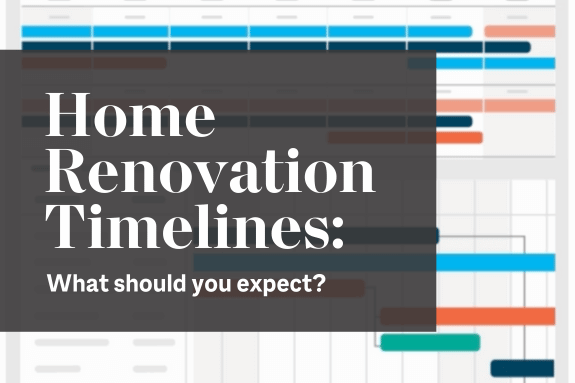How to Ensure a Smooth Home Addition Project in Plano
- seo2534
- Nov 27, 2024
- 7 min read
When you’re considering expanding your home, whether it's for more space, better functionality, or increased property value, a home addition in Plano can be a fantastic option. With the growing demand for larger living spaces, many homeowners in Plano are opting for home expansions and residential remodeling projects. However, ensuring a smooth home addition project involves more than just hiring a contractor—it requires careful planning, budgeting, and compliance with local regulations.
This guide is designed to help you understand how to ensure a Professional home addition project in Plano, by covering essential aspects such as design planning, choosing the right contractors, managing costs, and navigating legal requirements. Whether you’re planning to expand your kitchen, add extra bedrooms, or build a new second story, this article will equip you with the information you need to execute your home addition efficiently and effectively.
Why Planning Is Crucial for a Smooth Home Addition in Plano?
Proper planning is the foundation of any successful home addition project. A well-thought-out plan can save you significant time and money, prevent common issues, and ensure that the end result meets your expectations. Here’s why planning is essential for a smooth home addition in Plano:
The Importance of Early Planning for Home Additions

Planning ahead is crucial because it helps you avoid delays and cost overruns. Many homeowners make the mistake of rushing into their home addition without considering all the necessary details, leading to unforeseen complications. Early project planning includes deciding on the purpose of the addition, selecting the right design, and setting a realistic budget. The earlier you begin the planning process, the more likely you are to address any potential issues before construction starts.
The Role of Detailed Home Design in a Successful Addition
The home design is a critical aspect of your project. A custom home addition design tailored to your specific needs and preferences will ensure that the new space integrates seamlessly with the existing structure of your home. When designing your addition, consider the layout, functionality, and style, as well as the long-term benefits. Will the new space serve as a home office, an extra bedroom, or a larger living area?
The clearer you are about your goals, the easier it will be for your contractor to bring your vision to life. A well-designed addition not only improves the aesthetics of your home but can also enhance its functionality. For example, expanding your kitchen or adding a dedicated workspace can improve the flow of your home and provide much-needed space for your family.
How to Choose the Right Contractor for Your Home Addition in Plano?
One of the most important decisions in any home addition project is selecting the right contractor. A skilled and experienced contractor will guide you through the process, ensuring that the project is completed on time, within budget, and to your satisfaction. Here’s how to find the right professional for your Plano home addition.
Key Factors When Selecting a General Contractor
Start by looking for a general contractor with experience in residential additions and home remodeling projects in Plano. Ideally, you want someone who has a proven track record of successful projects that are similar to yours. Experience with home additions is essential because it shows they understand the unique challenges and technicalities involved, such as zoning laws, building codes, and design requirements.
Reputation matters. A contractor with a good reputation will provide you with high-quality work, professional service, and dependable timelines. Always check online reviews, ask for referrals, and request to see their portfolio of past home additions. Additionally, ensure that the contractor is fully licensed, insured, and bonded to protect yourself and your investment.
Steps to Vet Contractors Before Hiring
Before committing to a contractor, take the time to interview them. Ask questions like:
How many home addition projects have you completed in Plano?
Can you provide a detailed estimate for the project?
How will you handle unexpected changes or delays during construction?
This process will help you gauge the contractor’s communication style, experience, and ability to deliver on their promises. If possible, visit past project sites to assess the quality of their work firsthand.
Avoiding Common Pitfalls When Hiring a Contractor

To avoid headaches later, be cautious of red flags when hiring a contractor. These include vague estimates, lack of proper credentials, and poor communication. A good contractor should provide a clear contract, detailed breakdowns of costs, and realistic project timelines.
What Are the Necessary Permits and Legal Requirements for a Home Addition in Plano?
Before starting your home addition project, you must ensure that all the legal and regulatory requirements are met. Failing to secure the necessary building permits and adhere to Plano’s zoning laws could result in fines, project delays, or even the need to undo work that has already been completed.
Plano Building Codes and Zoning Laws
In Plano, building codes are put in place to ensure the safety, quality, and durability of your home addition. These codes cover everything from structural integrity to electrical wiring, plumbing, and fire safety. Your contractor will need to ensure that your home addition complies with these codes.
Zoning laws in Plano also regulate how and where you can build on your property. These laws may affect the size of your addition, its placement relative to property boundaries, and its height. For instance, if you’re planning to add a second story, the zoning regulations will determine whether you can build upward or if certain setbacks are required. A licensed contractor familiar with local regulations can help you navigate these requirements.
Ensuring Your Home Addition Meets Legal Standards
Before beginning construction, you’ll need to obtain building permits for your addition. These permits are issued by the Plano Building and Inspections Department and ensure that the work meets safety and structural standards. Your contractor should assist you in applying for and securing the necessary permits.
Working with a contractor who is familiar with Plano’s building codes and zoning laws will help ensure that your home expansion is fully compliant and reduces the risk of costly mistakes or project delays.
Why Ignoring Permits Can Derail Your Home Addition Project
Skipping the permitting process may seem like an easy shortcut, but it can lead to serious consequences. If the city finds that your home addition was constructed without the proper permits, they could force you to demolish the addition, which can be costly and time-consuming. Additionally, the resale value of your property may be negatively impacted if the work was not done according to code.
How to Budget for Your Home Addition Project in Plano?
One of the most important aspects of ensuring a smooth home addition project is setting a realistic budget. A home expansion can be costly, and managing your budget properly will help ensure that your project stays on track financially. Here's how to create a budget that works for your Plano home addition.
Setting a Realistic Budget for Your Home Expansion
A realistic home addition budget should include estimates for construction, materials, labor, permits, and any other associated costs. Work with your contractor to get a detailed cost estimate, and factor in additional costs for unexpected challenges. It's recommended to set aside 10-15% of the total budget as a contingency fund to handle unforeseen issues.
Cost-Saving Strategies for Home Additions in Plano
There are several ways to manage costs and ensure your home addition stays within budget:
Prioritize your needs: Decide what’s essential for the addition and what’s optional.
DIY options: If you have the skills, you might consider doing some of the work yourself, such as painting or landscaping.
Source materials wisely: Compare prices from different suppliers and look for quality materials that fit within your budget.
Financing Your Home Addition
If you don’t have the funds available upfront, there are various ways to finance your home addition project. Home equity loans, personal loans, or lines of credit are common options. Be sure to evaluate the costs and risks associated with each financing option before making a decision.
How to Ensure Timely Completion of Your Home Addition?
A common challenge with home addition projects is meeting deadlines. Delays can occur for various reasons, from bad weather to subcontractor availability. However, by setting clear expectations and maintaining effective communication, you can help ensure that your addition is completed on time.
Creating a Project Timeline for Your Home Addition
A detailed project timeline will help you track the progress of your home expansion and ensure that everything is completed on time. Work with your contractor to break the project into phases and establish deadlines for each phase. Include time for permitting, inspections, and approvals in your timeline.
Managing Delays and Unexpected Issues
Delays are common in any construction project, but proactive communication can minimize their impact. If delays occur, your contractor should keep you updated and provide solutions to keep things moving forward.
How to Keep Your Home Addition on Schedule
Regular progress meetings with your contractor can help keep the project on track. Make sure that all inspections are scheduled ahead of time, and maintain a buffer period in case of any unexpected setbacks.
Conclusion
A successful home addition project in Plano requires careful planning, choosing the right professionals, and adhering to local regulations. By selecting the right contractor, budgeting wisely, and following through with proper permit applications and legal compliance, you can create a home addition that increases both the value and functionality of your property. With these strategies, you can ensure that your home expansion is completed smoothly, efficiently, and to your satisfaction.
FAQs
How long does it take to complete a home addition in Plano?
The timeline for a typical home addition in Plano ranges from 4 to 6 months, depending on the size and complexity of the project. A more straightforward expansion may take less time, while more intricate additions like second stories or major structural changes may take longer.
What are the main costs associated with a home addition in Plano?
Costs for a home expansion typically include labor, materials, permits, design fees, and possible unforeseen expenses. The cost of home additions in Plano varies based on size, scope, and customization, but expect to budget anywhere from $100 to $500 per square foot, depending on the complexity.
Do I need a permit for a home addition in Plano?
Yes, most home additions in Plano require permits, especially for structural changes or significant alterations. You must submit plans and get approval from the Plano Building and Inspections Department before beginning construction.
What types of home additions are most popular in Plano?
Popular home additions in Plano include expanding kitchens, adding bathrooms, constructing home offices, and creating additional bedrooms or living spaces to accommodate growing families.
How can I ensure my home addition stays on budget?
To stay within budget, establish a clear and realistic budget, prioritize the essential aspects of the project, and regularly check with your contractor to monitor expenses. Setting aside a contingency fund and exploring financing options can also help manage costs effectively.






コメント